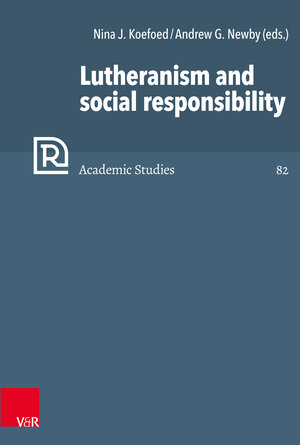The contributions in this volume enter the debate about the way in which the provision of poor relief can be influenced by its national confessional context. They bring new perspectives to the understanding of theological aspects of Lutheranism, such as the connection between justification by faith alone and care for the poor, and work and work ethics. The articles also analyse the implementation of social responsibility of the authority towards different categories of poor (‘deserving’ and ‘undeserving’), local administration and centralization of poor relief through connections of public and private sources of funding, and collaboration between state, church and civil society through different public and private aspects of poor relief. In this way the various contributions combine to demonstrate new ways in the study of the connection between confessional specifics and historical developments through detailed knowledge of theology, supported by concrete historical case studies.
Lutheranism and social responsibility | ISBN 9783525558683








